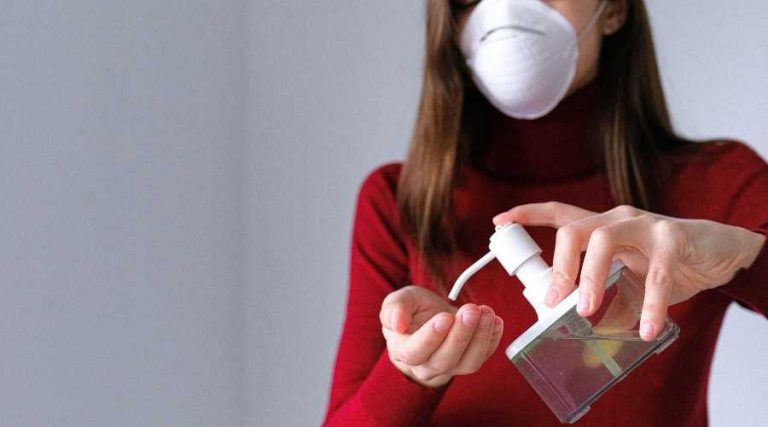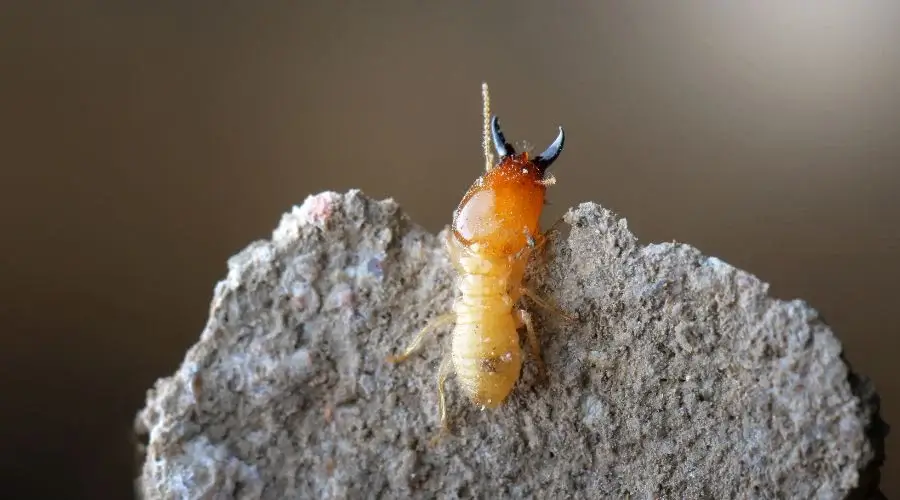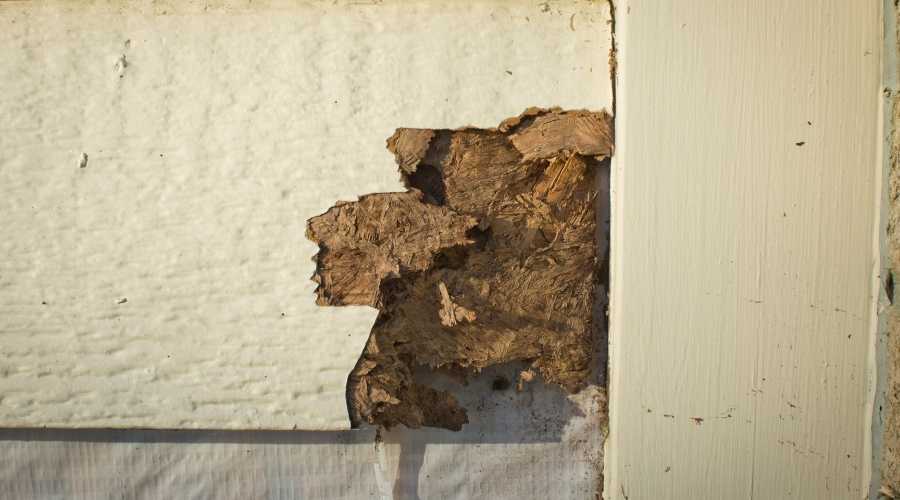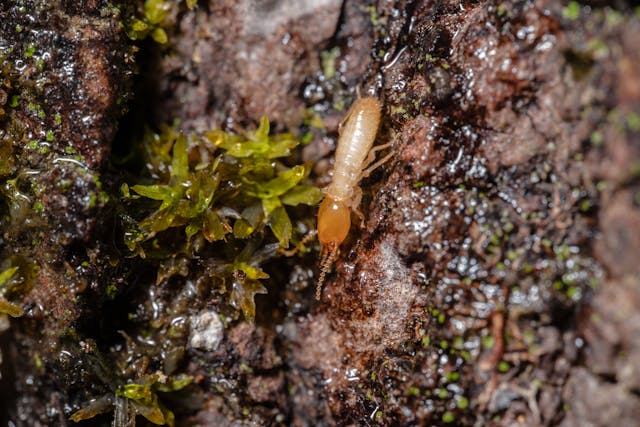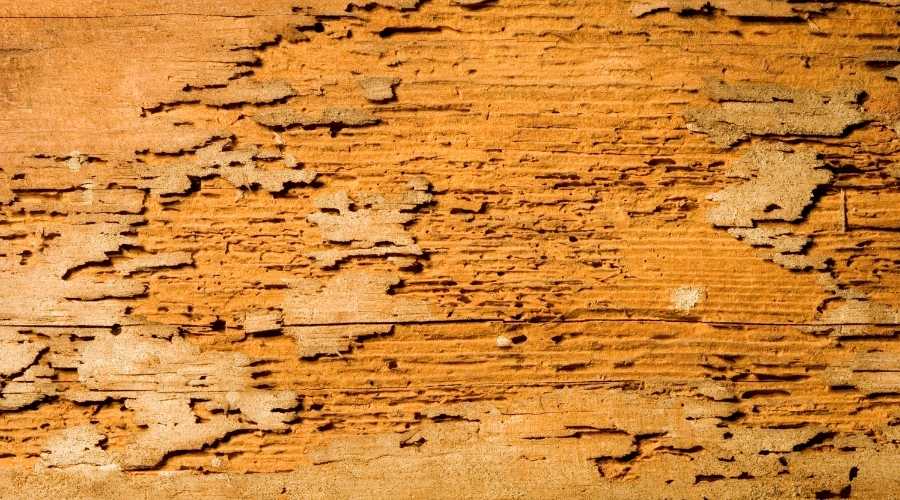Termites are known for causing serious damage to homes, but can they also affect your health? While termites don’t bite or spread diseases like some pests, their presence can lead to respiratory issues, allergies, and mold exposure. Let’s explore how termites can impact your health and what you can do to keep both your home and your family safe.
What Are Termites?
Termites are small wood-eating insects that live in large colonies. They consume cellulose, which is found in wood, paper, and plant materials. While they play an important role in breaking down dead wood in nature, termites can cause massive damage when they infest homes and buildings.
Types of Termites
There are over 2,500 species of termites, but they are generally grouped into three main types:
- Subterranean Termites – Live in soil and build mud tubes to access wood.
- Drywood Termites – Infest dry wood inside homes and furniture.
- Dampwood Termites – Thrive in moist wood found in decayed trees or water-damaged areas.
Where Do Termites Live?
Termites prefer dark, damp environments and are commonly found:
- Underground in soil
- Inside wooden structures, walls, and floors
- Near tree stumps, firewood piles, and mulch
- In warm and humid climates
In the U.S., subterranean termites are the most common and destructive, causing billions in damages each year.
What Causes Termites?
Termites are attracted to moisture, wood, and easy access to shelter. Common causes of an infestation include:
- Leaky pipes and water damage
- Poor drainage around the home
- Cracks in foundations and wooden structures
- Firewood, mulch, or tree stumps close to your house
Signs of Termites
Since termites work silently and out of sight, infestations often go unnoticed until major damage occurs. Look for these warning signs:
- Mud tubes along foundation walls and wood surfaces
- Hollow-sounding wood when tapped
- Buckling or sagging floors and ceilings
- Small, pellet-like termite droppings (frass)
- Discarded termite wings near windows and doors
Are Termites Harmful to Humans?
Termites don’t bite or transmit diseases, but they can create health hazards, especially for people with asthma, allergies, or respiratory issues. Here’s how they can affect your health:
1. Airborne Allergens & Respiratory Issues
- Termite nests contain dust, droppings, and wood particles, which can irritate the lungs.
- Mold growth from termite-infested damp wood can cause coughing, wheezing, and breathing problems.
2. Skin Irritation & Allergic Reactions
- Some people are allergic to termite saliva and frass, leading to itchy skin, watery eyes, and sneezing.
- Termites don’t sting, but their nests can attract mites and fungi, which may cause rashes.
3. Mental & Emotional Stress
- Termites cause an average of $3,000 in home repairs.
- The stress of expensive termite damage can take a toll on homeowners.
How to Get Rid of Termites
If you suspect a termite infestation, take action immediately. DIY treatments rarely work, so professional extermination is usually necessary.
Effective Termite Treatments:
- Soil Treatments – Pesticides are applied around the home’s foundation to kill termites.
- Bait Stations – Poisoned bait attracts termites, which then spread the toxin through the colony.
- Fumigation (Tenting) – Used for severe infestations to eliminate termites throughout a structure.
- Natural Remedies – Boric acid, neem oil, and essential oils can help deter termites but may not eliminate an infestation.
Termite Prevention: How to Keep Termites Away
Preventing termites is easier and cheaper than dealing with an infestation. Follow these tips:
- Reduce moisture by fixing leaks and improving ventilation.
- Keep wood away from your house (firewood, mulch, and tree stumps).
- Seal cracks and gaps in walls and foundations.
- Schedule annual termite inspections to catch problems early.
Termite Control: How to Find the Right Service Provider
When hiring a pest control company, consider the following:
- Experience & licensing – Choose a company with a strong track record in termite treatment.
- Treatment options – Look for eco-friendly or low-toxicity solutions if you have kids or pets.
- Warranty & follow-up services – Ensure they offer protection against future infestations.
FAQs About Termite Health Risks
Can termites make you sick?
Termites don’t spread diseases, but their nests can cause respiratory issues, allergies, and mold-related illnesses.
What does a termite infestation look like?
Look for mud tubes, hollow-sounding wood, termite droppings, and discarded wings.
When is a termite infestation bad?
If you notice visible wood damage, swarming termites, or sagging floors, the infestation is severe and requires immediate treatment.
How does a termite infestation occur?
Termites enter through cracks, soil, or wooden contact points and build hidden colonies inside your home.
FAQs About Escondido Pest Control
What termite treatment services are available in Escondido?
Escondido Pest Control offers inspections, eco-friendly termite treatments, baiting systems, and full fumigation services.
How much does termite control cost in Escondido?
Costs vary based on infestation size, but professional treatments typically range from $500 to $3,000.
Are there natural termite control options?
Yes, Escondido Pest Control offers low-toxicity treatments like borate wood treatments and baiting systems.
How can I book a termite inspection in Escondido?
Call or visit our website to schedule a free termite inspection with a certified pest control expert.
Final Thoughts
A termite infestation may not make you sick directly, but it can worsen air quality, trigger allergies, and lead to costly damage. The best way to stay safe is through early detection, prevention, and professional treatment. If you suspect termites in your home, don’t wait—contact a pest control expert today!

